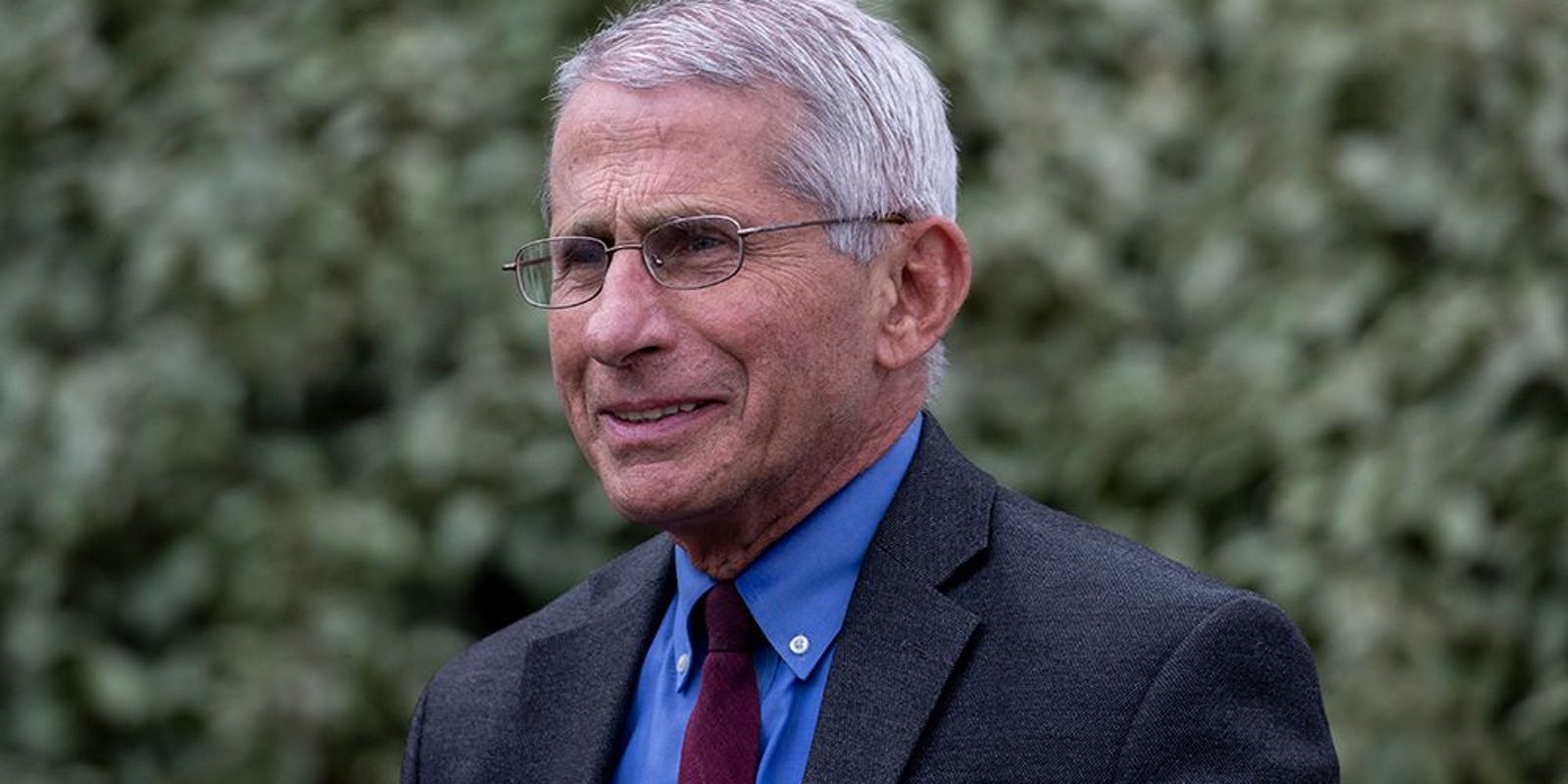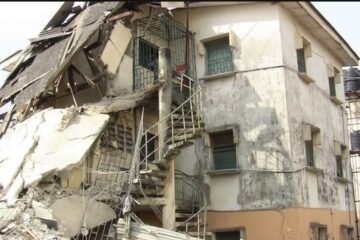CLOSE![]()
Dr. Anthony Fauci says we will never be able to act like “there never was a coronavirus problem.”
USA TODAY
The slight, bespectacled doctor speaking at a White House briefing on TV revived bleak, 30-year-old memories for Gary Cooper.
Dr. Anthony Fauci’s reassuring voice guided Cooper and thousands of gay men worldwide through the terrifying AIDS crisis of the 1980s.
Now, as Cooper watches and listens to Fauci issue stark but calm warnings about the threat of the coronavirus, the 74-year-old who has spent the past 35 years living with HIV has at times felt a familiar sort of distress.
“The risk of infection is created by what we do, by our actions, not who we are, not our nationality,” Cooper said. “It is spread by our contact.”
As COVID-19 ravages the globe, Cooper and gay men in Austin and worldwide who survived the AIDS epidemic have often found themselves reliving the dread and anxiety of a bygone era.
Does a friend or loved one — someone with whom they have had close contact — have the virus and not know? Will they get it themselves? Will it kill them?
“I think anybody who lived through the AIDS crisis recognizes some parallels, and of course, some differences,” Cooper said.
But as government officials, including President Donald Trump and Texas Gov. Greg Abbott, begin discussing a gradual return to pre-COVID-19 life, survivors of the AIDS epidemic are also eager to share lessons they learned decades ago, shedding a much-needed light of hope and a model of resilience.
They say they have long-refined templates for establishing new cultural norms for protecting against disease and advocating for communities that lack life-saving resources.
The AIDS crisis helped usher in an era of awareness of the gay community and the unique health challenges it often faced because of inequitable treatment. In a recent White House briefing, Fauci said the disproportionate death toll among black Americans who contract COVID-19 reminded him of the outsized impact HIV and AIDS had on gay men, saying it “ultimately shine(s) a very bright light on some of the weaknesses and foibles in our society.”
He and other experts are hopeful that the tragedies of COVID-19 will bring a similar focus to the health care inequities African Americans face nationwide.
Gay rights activists say much of what they gleaned from that time can be useful today.
“We learned some things about health, about spirituality, and about caring for each other,” said the Rev. Elder Jim Mitulski, who has served churches with mostly LGBTQ congregations in California and Texas and is now a United Church of Christ minister outside Oakland. “We survived it — not everyone, but collectively — and this is the gift we can bring to society that has never been more open to receiving it from us.”
Comparing the viruses
AIDS and COVID-19 introduced themselves in similar whirlwinds of terror, but experts point out significant differences in the two diseases.
Both attacked victims indiscriminately and viciously, leaving a trail of fear and death as scientists and doctors scrambled to trace the viruses’ origins and find effective treatments and vaccines.
Both diseases also share a particularly devilish characteristic: Those who lack symptoms can carry and unknowingly transmit the virus.
HIV and AIDS have killed 32 million people since the early 1980s, and nearly 75 million have been infected, according to the World Health Organization. In the United States, an estimated 700,000 people have died of HIV and AIDS.
In the mere months since COVID-19 appeared in China, estimates indicate more than 2 million people have been diagnosed with that virus worldwide, and nearly 134,000 have died, including 28,000 Americans.
In both instances, scientists and doctors have studied why certain populations are more at risk. In the case of AIDS, doctors discovered that gay men were more susceptible both because of the way they had sexual contact and because the stigma of their sexual identity made them less likely to seek medical care.
More: LGBTQ community may be ‘particularly vulnerable’ to coronavirus pandemic. Here’s why.
Doctors are still learning about COVID-19, but have established that those with underlying health conditions seem to be most at-risk of dying. Those in the African-American community who have less access to healthcare resources seem to be the most vulnerable. For example, 70% of Louisiana’s COVID-19 deaths were of black patients, even though they make up only 30% of the state’s population.
Unlike AIDS, which is transmitted through sexual contact or a blood transfusion, COVID-19 can be contracted through far more casual contact, similar to the flu or a stomach virus.
In the earliest days of HIV, many people who contracted the virus did not survive.
“Literally back then, when you started having symptoms, they would go in and we never knew if they would come out,” said Eugene Sepulveda, an Austin philanthropist and former chair of the city and county’s HIV Commission from 1994 to 1996. “A lot survived, and then others didn’t.”
Yet most people who have been diagnosed COVID-19 have recovered, and untold thousands have had mild or no symptoms.
Gay men who lived through the early days of AIDS also point out that COVID-19 doesn’t carry the shame that they suffered in the early days of HIV.
“There isn’t this idea that people deserve to have gotten it, or that they brought it on themselves somehow,” said Toby Johnson, who owned Liberty Books, an LGBT bookstore in Austin, with his longtime partner Kip Dollar. “That made it so much more difficult. You were afraid to tell anybody that you might have it or did have it.”
Perhaps the cruelest difference between the two diseases, though, comes in the victims’ final days.
Dr. David Wright, an Austin doctor who treated many of the city’s earliest AIDS patients, said hospice care grew in popularity during that era. Most patients died with friends and family at their bedsides.
“With (COVID-19), it eliminates any continued contact with people who are facing maybe the last days or hours of their life, and it is incredibly difficult, not only for patients and medical staff, but also families to abide by this concept of social distancing for people who are in the process of dying,” Wright said.
USA TODAY investigation: Coronavirus response delayed despite health officials’ private alarm
Lessons learned
Health experts worldwide say society will likely be forced to adjust to life with COVID-19, similar to how people, especially gay men, adapted to the AIDS outbreak.
Those who were sexually active had to establish new cultural norms for intimate interactions.
“Gay men had to learn to relate to one another with shields and barriers,” said Perry Halkitis, a dean of the Rutgers University school of public health and a specialist in HIV/AIDS prevention. “Here is exactly another new normal.”
Similarly, health officials expect that for some time, people may consider or be forced to wear masks or face coverings to curb the spread of COVID-19. New York and Maryland have made face shields mandatory, as have some cities such as Austin. It’s also likely people will eschew traditional hugs or handshakes.
The AIDS epidemic, though, also ushered in a new era of education and civil rights advancements for the LGBTQ community.
Those who were deeply involved in the response say they learned the importance of outreach, especially in minority and poor communities, where accurate information about the spread of the virus was lacking. They also learned to tailor their message for specific audiences.
“To expect people to do something because we told them, that didn’t bring about organic change,” Mitulski said. “It involves education and conversation.”
As COVID-19 takes an out-sized toll on African Americans, lawmakers and others have called on the government to urgently provide more testing to minority communities, noting that many do not have access to healthcare, nor do they have the ability in many instances to work from home. They also say leaders must address systemic disparities among minorities and others that result in the spread of illnesses, such as poor living conditions and lacking access to transportation.
The coronavirus test that wasn’t: How federal health officials misled state scientists and derailed the best chance at containment
At the height of the AIDS epidemic, doctors and counselors advised gay men to treat anyone with whom they had intimate contact as though they were HIV-positive, a way of thinking that could guide social interactions in the age of COVID-19.
“If you made that assumption, you protected yourself from other people, and they protected themselves from you,” Johnson said.
After the AIDS outbreak, many gay men also began taking their overall health more seriously, going to the doctor for routine physicals and getting vaccinations for illnesses such as the flu.
“This is another one of those crises that is going to force us to be better,” Halkitis said. “You have to take the bad with what will ultimately be the good.”
A sense of responsibility to others and stronger communities also emerged after the AIDS epidemic.
Many say they see hopeful signs that something similar will result from COVID-19, pointing to the outpouring of philanthropy, the widespread crafting and sharing of face masks and celebration of healthcare workers risking their safety on the front lines of the pandemic.
“We can see this as an opportunity to be greater than ourselves,” said Cooper, “and help people in need and reach out to people who are isolated, calling them on the phone and discovering on our own that in the actual act of helping others, we feel better ourselves and find courage,” Cooper said.
Read or Share this story: https://www.usatoday.com/story/news/investigations/2020/04/18/lessons-aids-crisis-serve-coronavirus-roadmap-survivors-say/5152812002/





